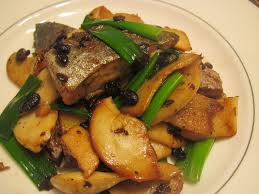MUSHROOMS DECREASES RISK OF BREAST CANCER.
Mushrooms have been shown to have anti-inflammatory, antiviral, cholesterol-reducing, and immune-enhancing properties, as well helping to reduce blood pressure and blood sugar levels. Generally speaking, mushrooms are a good source of dietary niacin (vitamin B3) and riboflavin (vitamin B2). White button mushrooms are also a good source of conjugated linoleic acid (CLA). Consumption of mushrooms was found to be associated with lower risk of heart disease in one European study. Mushrooms contain numerous compounds with anti-cancer activities, including various β-glucans and lectins, butein, ganodermanontriol, grifolin, lentinan, marmorin, and nebrodeolysin.
Various mushroom extracts have been shown to reduce proliferation and/or induce apoptosis of human bladder, cervical, colorectal, esophageal, head and neck, kidney, leukemia, liver, lymphoma, multiple myeloma, non-small cell lung, ovarian, pancreas, prostate, spleen, and stomach cancer cells, as well as malignant glioma cells. Mushroom extracts also have been shown to prolong survival of mice inoculated with melanoma cells, inhibit the growth of human colon cells in mice, and induce apoptosis of colon cancer cells in mice.
Breast cancer-related effects of eating mushrooms.
A case-control study of 1,009 Chinese breast cancer patients found that mushroom consumption was inversely related to breast cancer risk. A study of Korean breast cancer patients also found consumption of mushrooms to be associated with a significantly decreased risk of breast cancer. Another Korean study found that both high daily intake and high consumption frequency of mushrooms was associated with reduced risk of breast cancer among postmenopausal women.
Many types of mushroom appear to have beneficial effects with respect to breast cancer prevention (although note that some mushrooms are poisonous and others have been shown to strongly promote cancer in the laboratory). The information below concerns mushrooms commonly available in the U.S.
-White button mushrooms (Agaricus bisporous) are the most common mushrooms sold in supermarkets. They are also known as button mushrooms, white mushrooms, or table mushrooms. Portobello and crimini mushrooms are closely related to white button mushrooms. Of the mushrooms studied, white button mushrooms have among the most powerful proven breast cancer chemopreventive properties, since they have been shown to suppress aromatase activity and estrogen biosynthesis, in addition to inhibiting proliferation of estrogen receptor positive (ER+) breast cancer cells. Several studies have concluded that diets high in white button mushrooms may lower the risk of estrogen receptor positive breast cancer, especially in postmenopausal women, by reducing aromatase activity.
-Maitake mushrooms (Grifola frondosa) are sold dried or fresh in upscale supermarkets and specialty markets. Maitake mushrooms have been shown to reduce growth, inhibit angiogenesis, and induce apoptosis of human breast cancer cells in the laboratory. However, a 2009 trial of maitake mushroom supplementation in postmenopausal breast cancer survivors found that, contrary to expectations, the maitake extract had both immune enhancing and immune suppressant effects at various doses.
-Shiitake mushrooms (Lentinus edodes) are widely available fresh or dried in grocery stores and specialty markets. Shiitake mushrooms have been found to inhibit increases in tumor volume of human breast cancer cells implanted in mice. -Reishi mushrooms (Ganoderma lucidum) usually are sold only in powder form in capsules, in liquid extracts and as tea, since they are too bitter and tough to be eaten as food. Reishi mushroom extracts have been shown to inhibit proliferation, adhesion, angiogenesis, migration, and invasion of several types of breast cancer cells, including triple negative cells. The addition of green tea extract to reishi extract has been shown to have a synergistic effect in the inhibiting adhesion, migration and invasion of hormone receptor negative (ER-/PR-) breast cancer cells. Reishi extract has been shown to be effective in inhibiting inflammatory breast cancer (IBC) progression, one of the few foods to have demonstrated beneficial impact on this form of the disease. Reishi extract should not be used during chemotherapy. One study reported that reishi extract reduced the cytotoxic effects of Adriamycin in ER+/PR+ breast cancer cells. The same study reported that reishi increased the effectiveness of tamoxifen.
Mamaland Mushroom Farms (2015),
Blog:mamalandmushroomproject.blogspot.com,
E-mail:mamalandmushroomproject@gmail.com,
Tanzania.
Watsapp :- +255621-080-300
Fight Back Against Breast Cancer,Save Lives.
Mushroom is Therapy.
Fight Back Against Malnutrition,Save Lives. Mushroom is Therapy. #Mushroom_Is_Therapy.



























